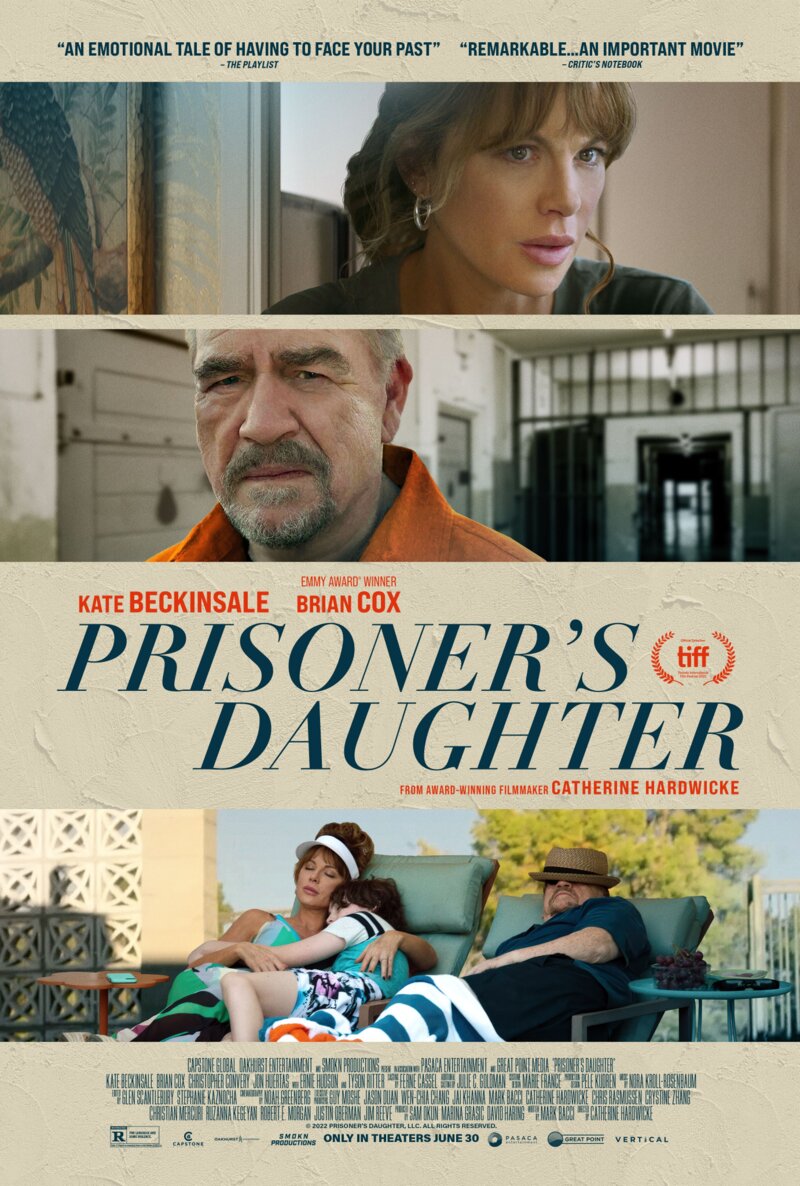
Review by
Eric Hillis
Directed by: Catherine Hardwicke
Starring: Kate Beckinsale, Brian Cox, Tyson Ritter, Christopher Convery, Ernie Hudson, Jon Huertas

On paper Prisoner's Daughter seems to represent a return
to director Catherine Hardwicke's roots in grounded, gritty
dramas set in the working class communities of the American South West.
But its faintly sketched characters, tendency towards melodrama and
predictable climax often make it resemble the sort of superficial family
dramas that were popular on US TV in the '90s, but without the luxury of
several seasons to allow us to get to know its characters.
Brian Cox plays Max, a prisoner who is offered the chance to
return home and be placed under house arrest when he is diagnosed with
terminal cancer. Trouble is, the family home is occupied by his daughter
Maxine (Kate Beckinsale) and his 12-year-old grandson Ezra (Christopher Convery), and Maxine doesn't want her old man anywhere near her son.

That's until Maxine loses her waitressing job thanks to her drug addict
ex Tyler (Tyson Ritter) causing a violent scene at her workplace.
Unable to pay for her epileptic son's meds, she agrees to take in Max on
two conditions: that he pays rent and pretends to be a long-lost uncle
rather than Ezra's grandfather.
What should be a story of an estranged father and daughter slowly
learning to put the past behind them never really pans out. Maxine is
initially all bluster, but she's won over remarkably quickly by her dad,
chiefly because he gets his hands on large sums of cash and even builds
an extension onto the family home. Rather than a clash between Max and
Maxine, the movie's central conflict pivots to an inevitable showdown
between Max and Tyler, one that borrows liberally from a certain Clint
Eastwood movie.

Prisoner's Daughter avoids getting into the meat of its
central relationship, as though screenwriter Mark Bacci has no
personal familiarity with this sort of dynamic and hasn't done much in
the way of research. There are occasional references to Max's violent
past as a mob enforcer, but the severity of his crimes are left
ambiguous. This causes us to question the film's portrayal of him as a
kindly old man who just wants to do right with his family before he
dies. Did Max kill people? Did he ever bring his violent ways back home
to his family? Maxine's issues with her father don't seem to stem so
much from him being a bad man as from him being absent throughout much
of her life. If the film had leaned into Maxine being fine with
criminality, having become numb to it due to being raised by a criminal,
it might have made for a more interesting and certainly grittier drama
than we're ultimately presented with.
The film presents something of a twisted morality. We're asked to warm
to Max despite his violent past, but we're supposed to view the drug
addicted Tyler as the embodiment of evil. Tyler is viewed through a very
reactionary lens – he's a deadbeat musician who lives in an artist's
community, so of course he's no good, right? When Max learns Ezra is
being bullied he has an old friend (Ernie Hudson) give the boy
boxing lessons, leading to a Karate Kid-esque scene where Ezra pummels his bully. Again, the idea of a
perpetuating cycle of violence being passed down from Max to his
grandson is something the film isn't interested in reckoning with.

Beckinsale is arguably a bit too glamorous to fully convince as a woman who has
led a life as troubled as Maxine, but she's so charismatic that it's
easy to overlook her miscasting. Conversely, Cox fully convinces as a
brawler with a short fuse, but the movie never plays up to his
strengths. Even if the script never really gives them anything of note
to chew on, Beckinsale and Cox are very engaging, making
Prisoner's Daughter an easy watch. But should a movie with
this premise be an easy watch?


